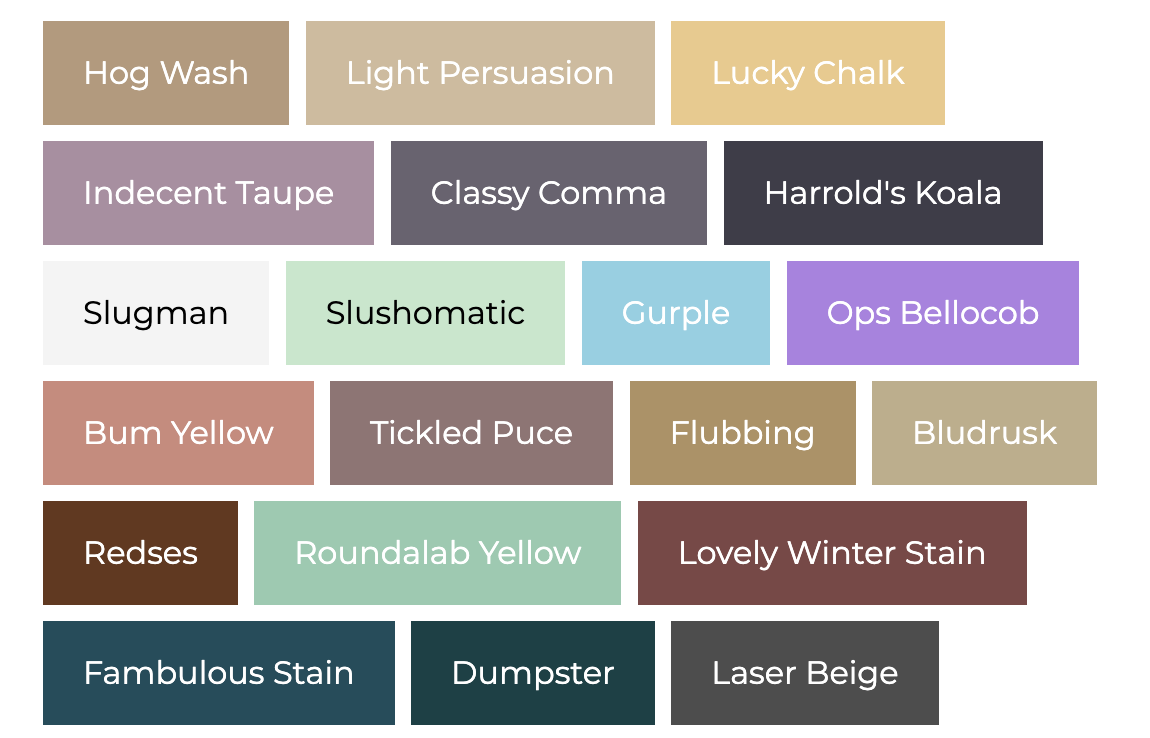Vol. 1 - Issue No. 3
The sport of dunking online, decreasing political content on social media, the technique to falling in love, compelled speech, more dragons and fantastic paint names courtesy of AI.
Dunk or Be Dunked
Matt Birchler opines on the popular sport of dunking on things you don't like online. He admits that, at one point in his life, it seemed cooler to be negative about something you didn't like than to be positive about something you did. However, he's come to a different perspective over the years.
This also isn’t to say that talking about the things you dislike is wrong, and I know being positive comes more naturally to some people than others — I get that peoples’ situations are different. What I will say is that I think it’s good to be aware of what you’re putting out into the world, and whether that body of work represents what you want others to think about you. If it is, awesome! But if not, it’s okay, that negativity spiral is very easy to fall into, but it doesn’t take much to pull yourself out of it either.
I think it's good advice that, if you do feel yourself pulled into a spiral of negativity, you can pull yourself out. Austin Kleon has written about this previously. He takes his own disgust and flips it into something positive by promoting the opposite. I have to keep reminding myself to do that.
Decreasing Political Content
Meta will be deliberately reducing political content from accounts you don't follow on both Instagram and Threads (and Facebook soon, as well). Jess Weatherbed from The Verge reports on the changes.
It’ll soon be easier to avoid seeing political content across Instagram and Threads unless users explicitly choose to have it recommended to them. In a blog post published on Friday, Meta announced that it’s expanding an existing Reels policy that limits political content from people you’re not following (including posts about social issues) from appearing in recommended feeds to more broadly cover the company’s Threads and Instagram platforms.
You can still get content of a political nature recommended to you by turning off the setting. However, I imagine that this will only serve to improve discourse on the platforms. We've gone from a society where politics and sex were not typically openly discussed in polite company to one where those topics are forced down your throat in many places of discourse.
The Technique To Falling In Love
The psychologist in me is fascinated by this piece (gift article) about how to fall in love with anyone by Mandy Len Cantron for the New York Times. The focus of the exercise is on 36 questions (developed by Dr. Arthur Aron) that get increasingly intimate.
Much of Dr. Aron’s research focuses on creating interpersonal closeness. In particular, several studies investigate the ways we incorporate others into our sense of self. It’s easy to see how the questions encourage what they call “self-expansion.” Saying things like, “I like your voice, your taste in beer, the way all your friends seem to admire you,” makes certain positive qualities belonging to one person explicitly valuable to the other.
As Cantron went through the exercise, which also includes a period of intense mutual eye contact, she began to believe in its effectiveness. As Cantron walks the read through her experience with this technique, the question of whether or not it "worked" for her and her partner arises. I won't spoil the ending, though. The whole thing is worth a read.
Compelled Speech
Jeremy Abel responds to a blog post about how not speaking up about the plight of Palestinians makes you complicit in the violence against them. He gives six reasons why he will not feel compelled to speak on any given issue, despite public pressure to do so. One of the reasons is that he doesn't feel like contributing to the current political divides.
I do not want to add to the current asinine, brain-dead polarization. I have been politically aware since the Clinton administration and the impulse to immediately and unwaveringly and irreversibly choose sides has never been this strong. A new issue arises and within 30 minutes the teams have been chosen on Twitter and we’re all supposed to go along with this idiocy. No thanks. I will exercise my judgement as best I can—and that includes judging whether I need to have a position on an issue and whether I need to speak about it publicly.
This aligns somewhat with a post Alan Jacobs published not long ago about the "silence is violence" movement that is particularly strong on social media. He starts by stating, "I don’t believe that 'silence is violence,' ever." I don't agree with that in all cases. There are times when speaking up can measurably alter the outcome of some injustice-in-progress. Those times are few and far between, though, and rarely take place on some social website timeline.
More Dragons
I have always wondered where the concept of dragons got its start — speculating that perhaps people imagined their existence after coming across dinosaur bones. Gemma Tarlach brings up a similar theory in this Altas Obscura piece.
No map from antiquity yet found actually declared “Here be dragons,” but the phrase has long been used as an ominous warning, and medieval cartographers tended to fill in the edges of the charted world with massive, snarling monsters. But the fearsome creatures, symbolizing the unknown and likely-not-very-pleasant, had to get their start somewhere. The roots of these legendary beasts may lie with massive bones and other remains of megafauna that went extinct at the end of the last ice age, more than 10,000 years ago. Take a tour through cities still proudly displaying their “dragon” remains, some of which bear uncanny resemblance to woolly mammoth tusks.

Clardic Fug
Janelle Shane used neural network generation way back in the olden days before 2022 to generate paint colors and their names. The neural net had no prior training on English but was fed lists of colors online.

I have to admit I'm more enamored with the names themselves than the technology or technique used to generate them. "Underchunk," "Painted Batman" (which is 8.5 times redder than a computer is supposed to be able to display) and "Ghost Giblet" are paints I would totally use on my walls. There are simply some great examples of word soup in here.



